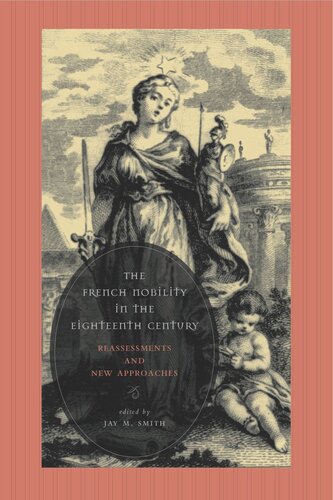

Most ebook files are in PDF format, so you can easily read them using various software such as Foxit Reader or directly on the Google Chrome browser.
Some ebook files are released by publishers in other formats such as .awz, .mobi, .epub, .fb2, etc. You may need to install specific software to read these formats on mobile/PC, such as Calibre.
Please read the tutorial at this link: https://ebookbell.com/faq
We offer FREE conversion to the popular formats you request; however, this may take some time. Therefore, right after payment, please email us, and we will try to provide the service as quickly as possible.
For some exceptional file formats or broken links (if any), please refrain from opening any disputes. Instead, email us first, and we will try to assist within a maximum of 6 hours.
EbookBell Team

4.1
70 reviewsHistorians have long been fascinated by the nobility in pre-Revolutionary France. What difference did nobles make in French society? What role did they play in the coming of the Revolution? In this book, a group of prominent French historians shows why the nobility remains a vital topic for understanding France’s past.
The French Nobility in the Eighteenth Century appears some thirty years after the publication of the most sweeping and influential “revisionist” assessment of the French nobility, Guy Chaussinand-Nogaret’s La noblesse au dix-huitième siècle. The contributors to this volume incorporate the important lessons of Chaussinand-Nogaret’s revisionism but also reexamine the assumptions on which that revisionism was based. At the same time, they consider what has been gained or lost through the adoption of new methods of inquiry in the intervening years. Where, in other words, should the nobility fit into the twenty-first century’s narrative about eighteenth-century France?
The French Nobility in the Eighteenth Century will interest not only specialists of the eighteenth century, the French Revolution, and modern European history but also those concerned with the differences in, and the developing tensions between, the methods of social and cultural history.
In addition to the editor, the contributors are Rafe Blaufarb, Gail Bossenga, Mita Choudhury, Jonathan Dewald, Doina Pasca Harsanyi, Thomas E. Kaiser, Michael Kwass, Robert M. Schwartz, John Shovlin, and Johnson Kent Wright.